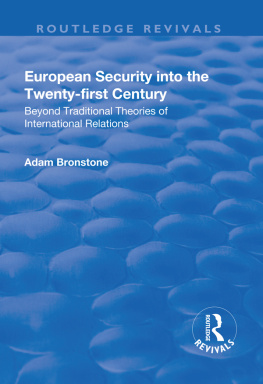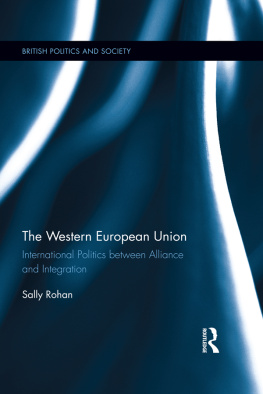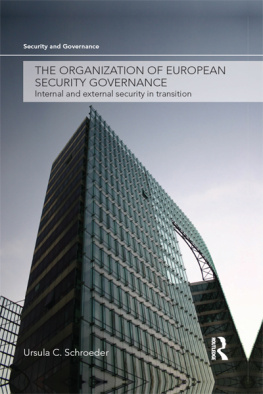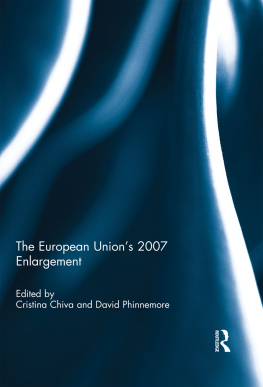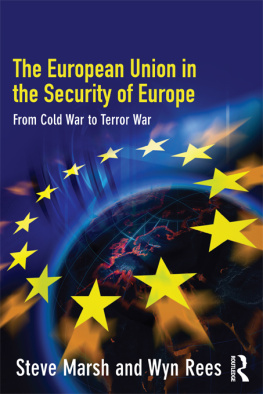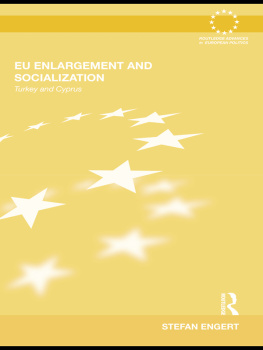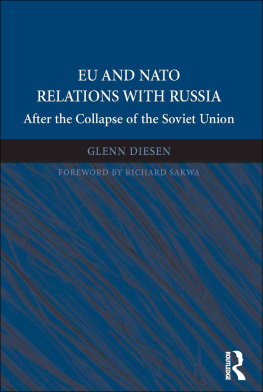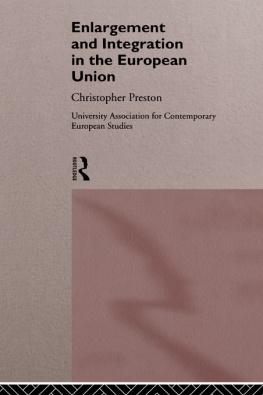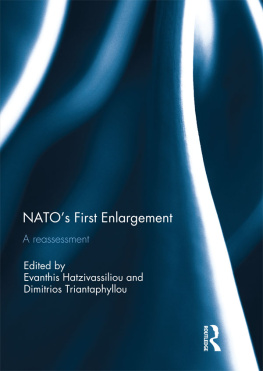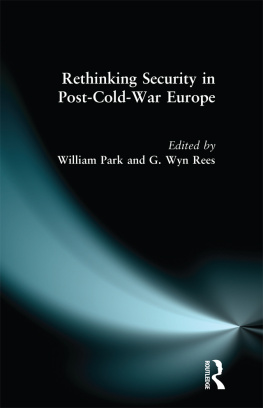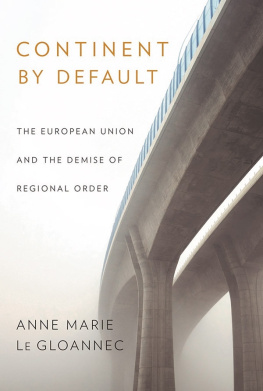First published 2000 by Ashgate Publishing
Reissued 2018 by Routledge
2 Park Square, Milton Park, Abingdon, Oxon OX14 4RN
711 Third Avenue, New York, NY 10017, USA
Routledge is an imprint of the Taylor & Francis Group, an informa business
Copyright Adam Bronstone 2000
All rights reserved. No part of this book may be reprinted or reproduced or utilised in any form or by any electronic, mechanical, or other means, now known or hereafter invented, including photocopying and recording, or in any information storage or retrieval system, without permission in writing from the publishers.
Notice:
Product or corporate names may be trademarks or registered trademarks, and are used only for identification and explanation without intent to infringe.
Publishers Note
The publisher has gone to great lengths to ensure the quality of this reprint but points out that some imperfections in the original copies may be apparent.
Disclaimer
The publisher has made every effort to trace copyright holders and welcomes correspondence from those they have been unable to contact.
A Library of Congress record exists under LC control number: 99073626
ISBN 13: 978-1-138-73614-6 (hbk)
ISBN 13: 978-1-315-18607-8 (ebk)
I first want to thank those colleagues of mine who have taken time to examine my work, spoke at lengths with me about my work, and encouraged this project from start to finish. This is a long list, but in specific I want to mention Harry Ziegler, Randall Germain, David Mutimer, Barry Jones, and Michael Rupp. It was Michael who gave me the idea of twinning the Russian case with that of the Turkish issue over breakfast in Leeds. Barry was instrumental throughout the CRIPT-BISA seminars in allowing me a forum for my views. I also want to thank the Centre for Defence Studies at the University of Manitoba for advice and comments with respect to , which was published as an occasional paper in their publications series. Both Randall and Harry were simply a constant source of advice and assistance throughout he course of my writing of this work.
There are, of course, many other people who, knowingly or unknowingly, have assisted in this project through the odd conversation or comment at a seminar at a conference, and my fellow presenters at these events. Other people, such as Hugh Bochel and Martin Smith, have given me advice with respect to publishing this work. I want to take this opportunity to thank them as well as the people at Ashgate Publishers, such as Kirstin Howgate, for their time, assistance and display of confidence in this work of mine as their anonymous reviews from whom I received sound advice.
Finally, having dedicated my first work to my family, I want to dedicate this work to my students, past, present and future. The inspiration of why I became an academic, and a constant source of interest, amusement and ideas. This is especially true of my students at the University of Edinburgh, both second and fourth year, who pushed me to think about these topics while writing and delivering lectures and seminars. I also want to mention a select group of University of Humberside students Dan, Martin, Robin and the gang who not only amused me, but also amazed me in their interest in this subject and willingness to learn. It is for them and those students whom I have yet to meet that I write this work, in the hopes that they are continually encouraged to think critically about International Relations, and their lives in general.
1
Introductory Comments
I Introduction
This is a book about theories of International Relations. Specifically, it is a book about the need to go past theories of International Relations that are of a traditional nature and on to those of a critical persuasion. Even more so, it is a book that will attempt to assert within the particular study of issues relating to European security the relevancy and primacy of an alternative theoretical paradigm in the face of traditional theories such as Neorealism. In this instance the Gramscian analysis that has been instigated by Robert Cox, as well as the two-level paradigm of Robert Putnam, will be used and evaluated.
II The History of a Discipline
However, this is also a book with a history, for it is the second rather than first step along a journey which will attempt to work towards a redressing of the profound imbalance within the theoretical state of the study of International Relations. Too long this discipline has been, as Stanley Hoffmann once described it, an American social science.
This situation has not changed since those times. Hayward Alker in 1984 were mentioned, with the latter appearing to have more potential as a successor theory to that of Neorealism. This position, as well as these trends within the study of IR will be explored in greater detail in the next chapter.
III Objectives and Goals
This book is the logical and desired next step from these initial conclusions. But it is also a book that will attempt to go much further. It is a book that will, rather than stay at the level of criticism, an alternative theory if it is a) to explain European security issues and b) challenge the hegemonic status of Neorealist thought within the study of International Relations. But let one be are political-economic in origins and nature. Thus a case will have to be made that the study of international relations can be made adequately from the vantage point of a paradigm not created with that goal in mind. Given the dominance of Neorealism and its antecedents in the study of IR, this is a daunting task.
But it is one that needs to be done, regardless of the outcome. At best, we will conclude our findings with the realization that this paradigm is substantial enough in its ability to explain and understand that a further challenging of hegemony is warranted. At least, the book will serve as another chapter in a hitherto short history of alternative perspectives and their ability to question the hegemonic status of Neorealist thought. Thus regardless of the outcome, the project is one that is worthwhile. We need not become hegemonic in status to be successful in our outing. Given the paucity of European security-related works that are of an alternative nature, another book added to the collection is not a bad thing in itself. Growth in the absolute number of such works is healthy, and may spur on additional research by others.

